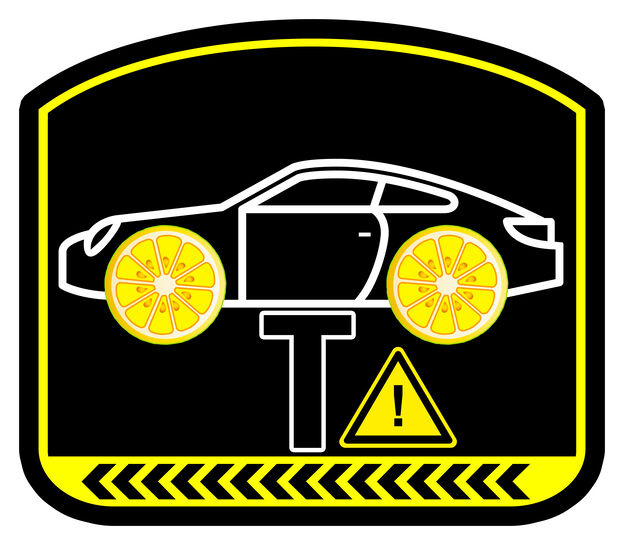
Buying a used car can be an intelligent financial decision, but it can also come with risks. Many buyers must know they have protections under Lemon law, even for used vehicles. If your newly purchased used car has severe defects, you could be entitled to compensation or a replacement vehicle. Here’s everything you need to know about how lemon law applies to used cars, especially in California.
Signs Your Used Car Is a Lemon
Understanding the signs of a lemon is crucial for any used car buyer. While all vehicles require some maintenance, there are clear indicators that your car may be more problematic than typical wear and tear. Some warning signs include:
- Repeated Mechanical Failures: If you frequently visit the mechanic for the same issue, this could signify a lemon. For example, if the transmission constantly fails despite repairs, your car might qualify under the lemon law.
- Extended Time in the Shop: According to California’s Lemon Law, if your vehicle spends excessive time in the shop—typically 30 days or more—you may have grounds for a claim. This time frame includes cumulative days, not just one repair visit.
- Safety-Related Issues: If your used car has a defect that poses a severe safety risk, such as brake failures, steering problems, or electrical issues affecting airbags or lights, it may qualify as a lemon. Evaluators often prioritize safety-related defects when reviewing lemon law claims.
- Inability to Fix Issues: Even if the dealership or repair shop attempts to fix the problem, you may have a solid lemon law case if it remains unresolved after multiple attempts. Usually, lemon law comes into play when the car manufacturer has made four or more unsuccessful repair attempts.
What to Do if Your Used Car Is a Lemon
Once you’ve identified that your car may be a lemon, following the proper steps to protect your rights is crucial. Here’s what to do:
- Document Everything: Keep detailed records of every repair attempt, including dates, invoices, mechanic notes, and communications with the dealership or manufacturer. These records will serve as essential evidence if you file a claim.
- Please consult with a Lemon Law Lawyer: Navigating lemon law claims can be complex, especially regarding used cars. A knowledgeable San Diego lemon law lawyer can evaluate your case, guide you through the process, and help you get the compensation you deserve. We specialize in protecting consumer rights under California’s lemon law.
- Send a Formal Demand Letter: Before pursuing legal action, you must allow the manufacturer or dealership to resolve the issue. A formal demand letter, drafted with the assistance of an attorney, outlines your case and requests a repair, replacement, or refund.
- File a Lemon Law Claim: If the manufacturer refuses to cooperate, the next step is filing a lemon law claim. This may result in a settlement, arbitration, or, in some cases, a court trial. Most lemon law cases are resolved through negotiation, but having a lawyer ensures your rights are fully represented.
How Long Do You Have to File a Claim?
California’s statute of limitations for filing a lemon law claim is typically four years from the date you first experienced the issue. However, you must do this immediately. Filing for a claim as soon as the person realizes that his car is defective will give him more substantial grounds for his case as much as it will eliminate legal time-bar questions.
Secondly, based on this statute, the period is four years, but repairs or inconsistent maintenance will slow down your claim. It’s always a good idea to consult a lemon law lawyer in San Diego when you suspect your used car may qualify under the lemon law. This ensures the process moves smoothly and you don’t miss any critical deadlines.
The Importance of Vehicle History Reports
When purchasing a used car, one of the best ways to avoid buying a lemon is by carefully reviewing the vehicle’s history report. These reports provide insight into the car’s past and help you spot red flags before purchasing. Here’s why they’re essential:
- Accident History: A vehicle involved in multiple accidents is more likely to develop serious mechanical issues over time. If a car has been in a severe accident and inadequately repaired, it could qualify as a lemon under state law.
- Previous Lemon Law Claims: In some cases, vehicles classified as lemons by previous owners may be resold. Checking a car’s history ensures you’re not purchasing a car with a known defect deemed irreparable under the Lemon law.
- Service Records: A detailed service history can explain whether the car has chronic mechanical issues. If the report shows frequent, repetitive repairs, the car could be prone to future problems, and you might want to reconsider the purchase.
- Odometer Rollback: Unfortunately, some sellers engage in deceptive practices like rolling back the odometer to make a vehicle appear less used than it truly is. Vehicle history reports can expose odometer fraud and help you avoid buying a car with hidden issues.
- Title Issues: A clear title is critical when purchasing a used car. When an insurance company considers a vehicle a total loss, it labels the title as “salvage” or “rebuilt.” These vehicles are often prone to problems, so steer clear unless you know the risks.
Conclusion
Purchasing a used car should be something other than guesswork. You can safeguard your investment and rights as a consumer by identifying the signs of a lemon, acting when you realize a defect with the car you bought, and using essential tools such as car history reports. California’s lemon law is quite a guard that serves used car buyers with adequate protection. If you find yourself with a problematic vehicle, don’t hesitate to consult a lemon law lawyer, like the experts at Premier Legal Center, APC, to ensure you get the compensation you deserve.